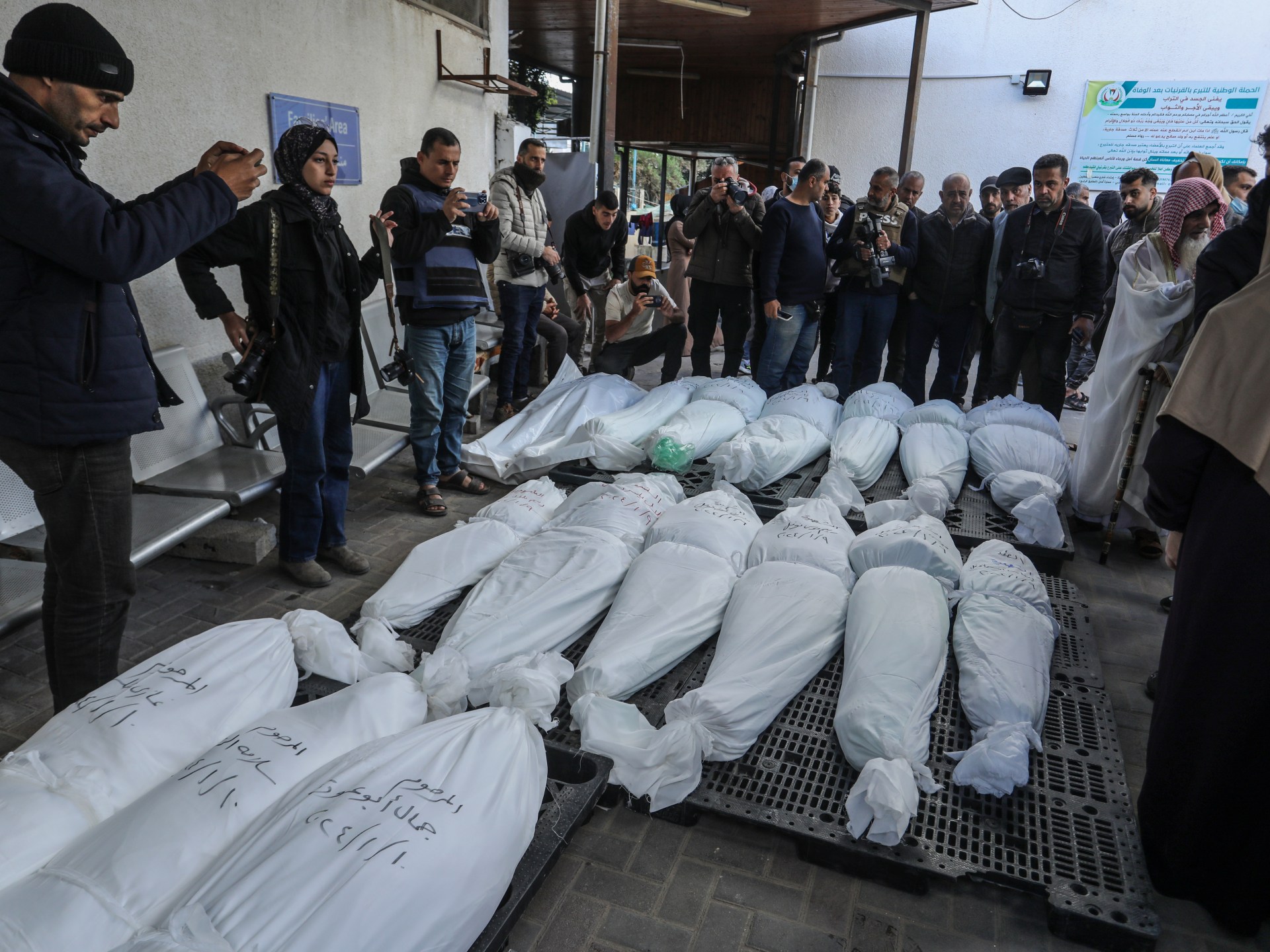Al Jazeera Net correspondents
Erbil- The reactions continued Kurdstan Iraq On bombing Erbil city before Iran With ballistic missiles more than a week ago, including demonstrations and condemning political positions, which culminated in calls to boycott Iranian goods in the region’s markets.
At dawn last Tuesday, the Security Council of the Kurdistan Region in northern Iraq announced in a statement that the Iranian Revolutionary Guard launched a ballistic missile attack on several civilian areas in Erbil, killing 4 civilians and wounding 6 others.
And he announced Revolutionary Guards The Iranian regime bombed what it described as “spy centers and gatherings of anti-Iranian terrorist groups” in Erbil with ballistic missiles, according to the official Iranian news agency IRNA.
The Erbil Chamber of Commerce and Industry issued a call to the masses in the Kurdistan region to boycott Iranian goods, a position issued for the first time, and it was surprising to the citizens of the region on the one hand and to Iranian companies and merchants on the other hand.
The Chamber of Commerce called on businessmen in the Kurdistan region in general, and especially in Erbil, which is an important market for Iranian products and imports many goods daily from its eastern neighbor through more than 6 border crossings, to sever all economic and commercial relations with Iran.
Huge trade exchange
For its part, the Tehran Chamber of Commerce called for withdrawing that call, linking this to the extent of the great harm that would befall the two parties, and called for “clinging to the ropes of affection and looking toward the bright future that awaits the development of joint cooperation, with open-mindedness.”
Trade exchange between Iran and the Kurdistan Region annually reaches $6 billion, or nearly half of what enters through border crossings from Iran to Iraq, so the region is an important market for it. There are 10 border crossings between Kurdistan and Iran. 6 of them are official, and 4 are unofficial.
Food and construction materials rank first on the list of Iranian exports to the Kurdistan region, as geographical proximity leads to ease of transportation and low cost. Every day, 400 trucks loaded with goods are brought from the Haj Omran border crossing into Erbil and then distributed to the rest of the governorates.
The call of the Erbil Chamber of Commerce to boycott Iranian goods was met with response among citizens and merchants who believe it is necessary to have a position and a pressure card against the repeated Iranian attacks, but at the same time they are concerned about the negative repercussions of the boycott, such as the rise in prices of food and construction materials.
National duty
The construction supervisor, engineer Amed Dosky, speaks of their readiness to pursue the boycott “as a national duty,” even though they will suffer because many of the building materials come from Iran. Therefore, he added in an interview with Al Jazeera Net, “The regional government must develop a good plan through cooperation with construction merchants and local factories, so that it can control the prices of building materials and not affect this province on the construction market.”
In this regard, economist and university professor Ibrahim Musa says, “From an economic standpoint, this boycott will have a negative impact on both sides. As for the region, it is difficult to find a new and alternative market for Iran quickly, and alternative imported goods may have exorbitant prices due to high transportation costs, and this will create a financial burden on the citizen.” With limited income, the losses of a certain category of merchants increase.”
Moussa added to Al Jazeera Net, “On the other hand, Iran’s losses will not be less due to the presence of more than 200 of its companies operating within the Kurdistan region, and this will directly and indirectly affect it, and if the region is able to find actual alternatives to Iranian goods, it will inflict great losses on Tehran’s exports and will cause it to lose a market.” A mission in Erbil.
The call received a response from a segment of citizens, as Sakfan Hussein, a citizen of the Kurdistan region of Iraq, said that he boycotted Iranian goods after this call, even though they are the cheapest on the market among the goods of other countries, but this is “the least duty towards the civilian victims who fell as a result of the bombing.” Iranian,” he told Al Jazeera Net.
Decreased opportunities for cooperation
The impact of these unexpected developments comes at a time when both sides were keen to develop trade exchange between them and provide appropriate opportunities for Iranian businessmen and investors to come to the Kurdistan region and invest in it. There were plans to expand the level of trade exchange by opening new border crossings and establishing free economic zones on the border between the two parties.
On the night of January 15, Iran bombed a site in Erbil with more than 6 ballistic missiles, killing a famous Kurdish businessman and his daughter. It announced that it had targeted an Israeli Mossad site and eliminated those gathered there.
However, the Kurdistan Regional Government denied that the site was for the Mossad, and confirmed that it was the home of the businessman Bishro Diziyi, who was killed in the bombing, in addition to the killing of the Iraqi businessman Karam Mikhail, who was a guest of Bishro, as well as the killing of two female workers of Filipino nationality who were working in this house. A number of other members of the Bishro family were wounded, including his wife and two of his children.
Baghdad condemned the attack and formed investigation committees to verify the validity of the Iranian claim. However, it later confirmed the Kurdish story, categorically denying that Beshru Diziyi’s house was a Mossad site.





